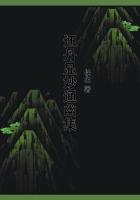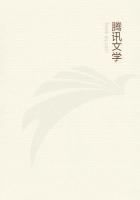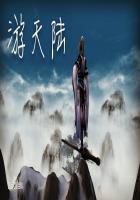5. If we try to answer the general question of the genetic relation of man to the animals on the ground of a comparison of their psychical attributes, it must be admitted, in view of the likeness of psychical elements and of their simplest and most general forms of combination, that it is [p. 281] possible that human consciousness has developed from a lower form of animal consciousness. This assumption also finds strong support in the fact that the animal kingdom presents a whole series of different stages of psychical development and that every human individual passes through an analogous development. The doctrine of psychical development thus confirms in general the results of the theory of physical evolution, still we must not overlook the fact that the differences between the psychical attributes of man and those of the animals, as expressed in the intellectual and effective processes resulting from apperceptive combinations, are much broader than the differences in their physical characteristics. Then, too, the great stability of the psychical condition of animals, which undergoes little change even in domestication, renders it exceedingly improbable that any of the present animal forms will develop much beyond the limits that they have already reached in their psychical attributes.
5a. The attempts to define the relation of man and animals from a psychological point of view vary between two extremes. One of these is the predominating view of the old psychology that the higher "faculties of mind", especially "reason", were entirely wanting in animals. The other is the wide-spread opinion of representatives of special animal psychology, that animals are fully equal to man in all respects, in ability to consider, to judge, to draw conclusions, in moral feelings, etc. With the rejection of faculty-psychology the first of these views becomes untenable. The second rests on the tendency prevalent in popular psychology to interpret all objective phenomena in terms of human thought, especially in terms of logical reflection. The closer psychological investigation of so-called manifestation of intelligence among animals shows, however, that they are in all cases fully explicable as simple sensible recognitions and associations, and that they lack the characteristics belonging to concepts proper and to logical operations. But associative processes pass without a break into apperceptive, and the beginnings of the latter, that is simple acts of active attention and choice, appear [p. 282] without any doubt in the case of higher animals, so that the difference is after all more one of the degree and complexity of the psychical processes than one of kind.
Animal instincts presented a very great difficulty to the older forms of psychology, such as the faculty-theory and the intellectualistic theories (§ 2). Since the attempt to deduce these instincts from the conditions given in each individual case led to an improbably high estimation of the psychical ability of the animal, especially when the instinct was more complex, the conclusion was often accepted that instincts are incomprehensible, or, what amounts to the same thing, due to connate ideas. This "enigma of the instincts" ceases to be an enigma when we come to look upon instincts, as we've done above, as special forms of impulsive action, and to consider them as analogous to the simple impulsive acts of men and animals, for which we have a psychological explanation.
This is especially true when we follow the reduction of what were originally complicated acts, to impulsive or reflex movements in the phenomena of habit, so easily observed in the case of man, as, for example, the habituation to complex movements in learning to play the piano (comp. p. 192 sq.).
It is often argued against this theory of instinct that it is impossible to prove empirically the transmission of acquired individual variations which we have assumed, that, for example, there are no certain observations in proof of the transmission of mutilations, as used to be asserted so frequently. Many biologists accept the view that all the properties of the organism arise through the selection resulting from the survival of the individual best adapted to natural conditions, that all such properties are accordingly deducible from "natural selection", and that in this way alone changes can be produced in the germ and transmitted to descendants.
Though it must be admitted that an attribute acquired by a single individual, generally has no effect on the descendents, still, there is no apparent reason why habitual acts, which are indeed indirectly due to outer natural conditions, but depend primarily on the inner psycho-physical attributes of the organism, may not cause changes in the nature of the germ when these acts are repeated through many Generations, just as well as the direct influences of natural selection. As further evidence for this view we have the fact that in some cases whole families inherit peculiar [p. 283] expressive movements or technical ability in some line (p. 285). This does not exclude in any case the cooperation of natural influences, but is in full agreement with the facts of observation which show that these influences act in two ways: first, directly in the changes that natural selection brings about in the organism while the organism remains passive, and secondly, indirectly in the psycho-physical reactions that are caused by the outer influences, and then in turn give rise to changes in the organism. If we neglect the latter fact, we not only lose an important means of accounting for the eminently purposive character of animal organisms, but further, and more especially, we render impossible a psychological explanation of the gradual development of volition and its retrogradation into purposive reflexes as we see it in a large number of connate expressive movements (§ 20, 1).















